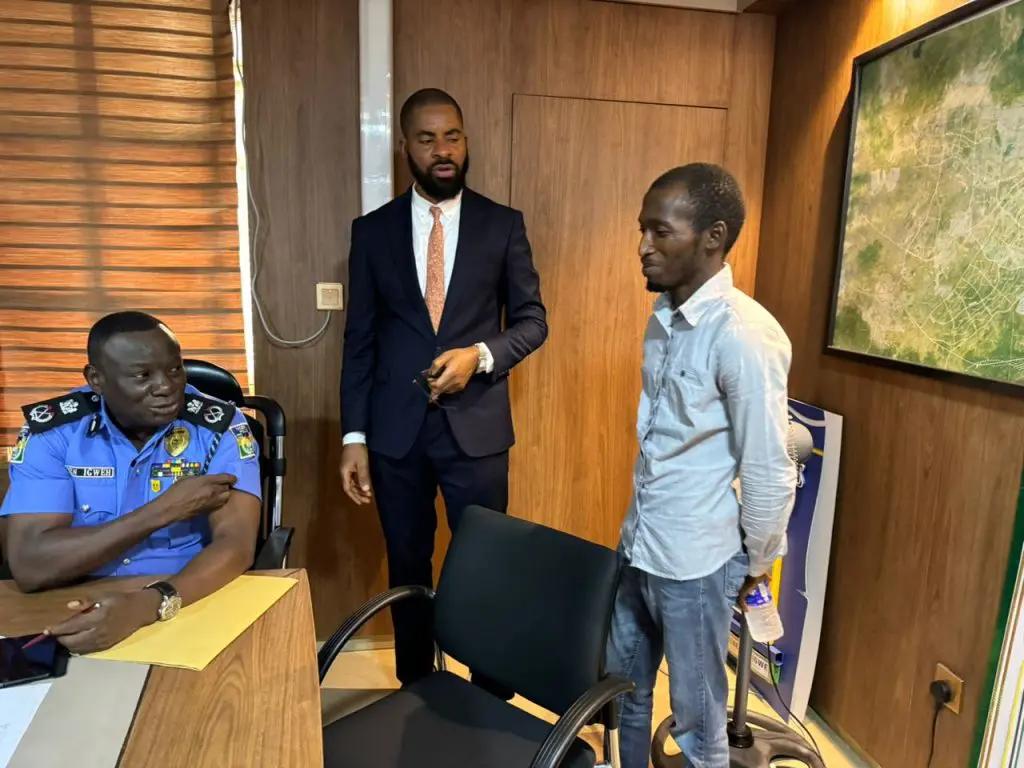
Abuja – Nigeria’s Federal Capital Territory Police Command on Friday, said, a man identified as Shuaibu Yushau who was arrested on July 8 for attempted suicide has been released on bail to his attorney, Deji Adeyanju.
Josephine Adeh, the spokesperson for the FCT Police Command made this known in a Friday statement on X.
Ms Adeh said Yushau’s release follows a mental assessment conducted by the FCTA SDS.
She said although the assessment report indicated that he is mentally stable, symptoms of anxiety, persistent worry, and fears were observed in the course of profiling him.
The police spokeswoman added that the FCTA SDS recommended that the suspect should be allowed to report weekly to their office for further psycho-social care and support, hence the reason for admitting him to bail.
“On Thursday, July 18, 2024, the FCT police command released Alhaji Yushau Shuaibu on bail to his lawyer, Deji Adeyanju. Shuaibu who was arrested for climbing the Aso Radio mast. He was referred to the FCTA SDS for a mental assessment, which found him mentally stable.
“However symptoms of anxiety, persistent worry, and fears were noted during his profiling. The SDS recommended that he receive further psycho-social care and support, which contributed to the decision to release him on bail,” the police said.
Shuaibu was arrested for climbing the Aso Radio mast in protest against insecurity and hardship in the country. He said he had been observing the mast for about a week before deciding to climb it.
He said in a suicide note that he was ready to sacrifice his life for Nigerians to protest the prevailing hardship and insecurity in the country. He also called on Nigerians to join the protest.
The FCT Police had stated that Shuaibu would be charged to court for attempted suicide, disturbance of public peace, and incitement contrary to various sections of the Penal Code Act if found to be mentally stable.
Nigeria has seen an upsurge in suicide cases recently, some health experts have blamed the biting economic hardship and hunger.
The country is facing its worst economic crisis in decades, with skyrocketing inflation, a national currency in free-fall and millions of people struggling to buy food. Only two years ago Africa’s biggest economy, Nigeria is projected to drop to fourth place this year.
The pain is widespread. Unions strike to protest salaries of around $20 a month. People die in stampedes, desperate for free sacks of rice. Hospitals are overrun with women wracked by spasms from calcium deficiencies.
The crisis is largely believed to be rooted in two major changes implemented by a president elected 14 months ago: the partial removal of fuel subsidies and the floating of the currency, which together have caused major price rises.
A nation of entrepreneurs, Nigeria’s more than 200 million citizens are skilled at managing in tough circumstances, without the services states usually provide. They generate their own electricity and source their own water. They take up arms and defend their communities when the armed forces cannot. They negotiate with armed kidnappers when family members are abducted.
But right now, their resourcefulness is being stretched to the limit.
Some folks are planning protests to voice their concerns about the economic situation, including rising inflation and poverty, under President Tinubu’s administration.
The protests are expected to happen in the north and other parts of the country, but residents and leaders of the south-eastern region, inhabited by the Igbo ethnic group – have made it clear that they are not going to be part of the mass action.
KOIKI Media bringing the world 🌎 closer to your door step
